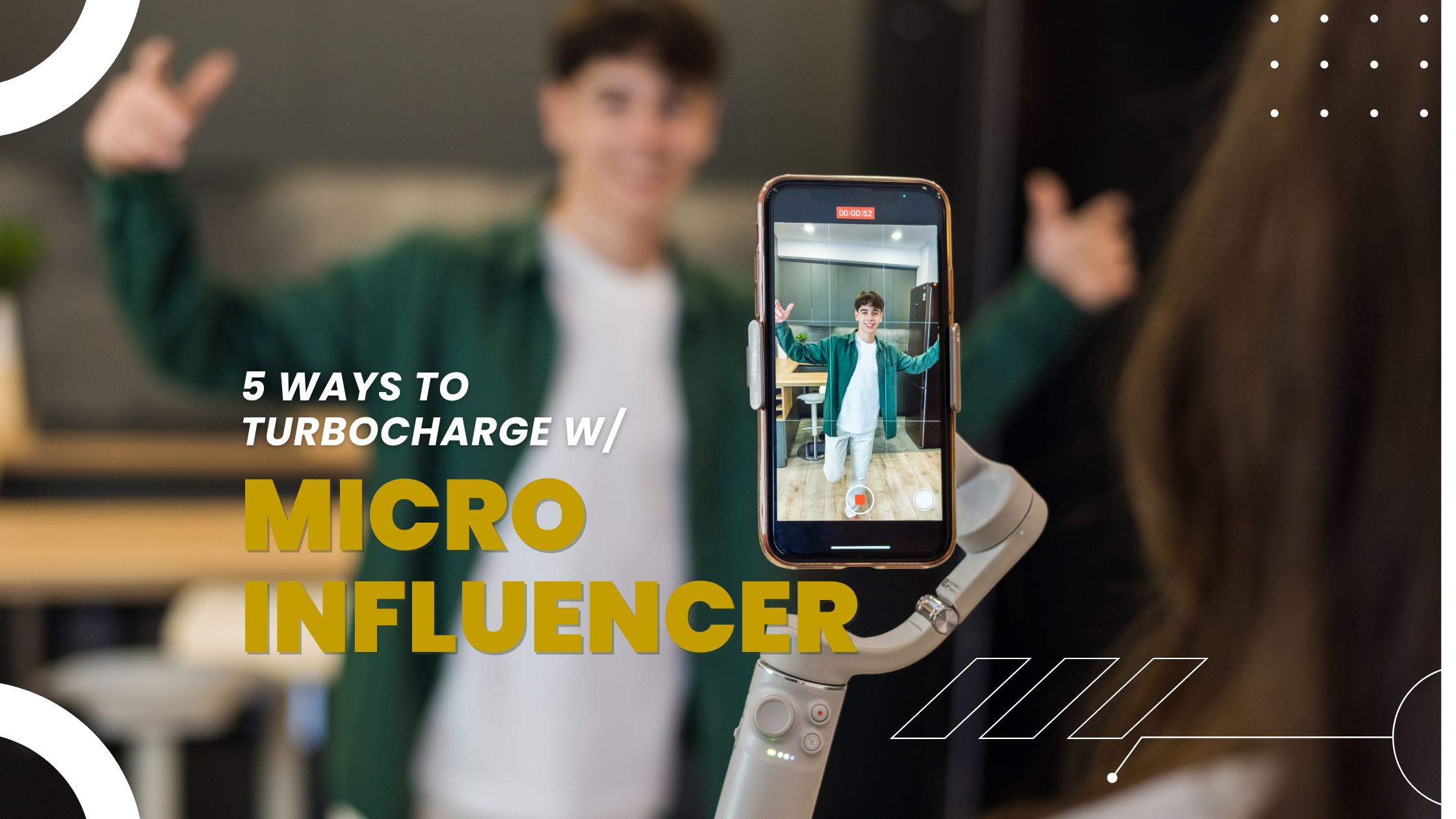Navigating the rapidly evolving landscape of digital marketing and Search Engine Optimisation (SEO) has been a cornerstone of my journey and the many businesses we have supported at the Institute of Excellence. Over the past decade, I have dedicated myself to mastering the intricacies of SEO and digital content creation, building a robust online presence for our school of tourism and small business.
Through hands-on experience and continuous learning, I have developed and implemented strategies with the intention to propel our website to the forefront of search engine rankings. This blog post encapsulates the insights and expertise I’ve gained, offering you a comprehensive guide to understanding and leverage the future of SEO and the Search Generative Experience. Accompanying this blog, in case you have no time to read, there is also a Tourism Hub Podcast Episode 38 for your convenience.
Integrating artificial intelligence (AI) is reshaping traditional approaches as digital marketing and search landscapes evolve. AI-driven models like ChatGPT are revolutionising how we understand and implement search engine optimisation (SEO). This transformation heralds the emergence of the Search Generative Experience (SGE), where AI models provide contextual, conversational, and personalised search results. As businesses we must adapt our SEO strategies to remain competitive, leveraging schema markup and enhanced data to ensure content visibility as we enter this AI-dominated era.
Introduction to SEO Evolution
The digital age has seen unprecedented advancements, particularly with AI’s role in transforming various industries. For SEO, these changes are not just trends but fundamental shifts in how search engines operate and users interact with search results. As AI models like ChatGPT become integral to the search process, businesses must rethink their SEO strategies to align with these innovations.
Importance of Adapting to AI in SEO
AI’s influence on SEO extends beyond simple algorithms, encompassing a deeper understanding of user intent and providing more relevant and engaging search results. This shift necessitates businesses to adopt new techniques to optimize content for AI-driven models, ensuring they capture organic traffic and maintain visibility in an increasingly competitive digital landscape. As highlighted by NICE (2023) in their exploration of AI’s role in customer experience (CX), “Proactive, holistic understanding is vital to producing sustainable, life changing CX outcomes” (p. 4). This highlights the necessity of integrating AI into SEO strategies to foster meaningful connections and positive user impacts.
What is SEO?
Search Engine Optimisation (SEO) involves optimising websites and content to enhance visibility on search engine results pages (SERPs). The goal is to attract organic traffic by ensuring web content ranks highly for relevant queries. SEO encompasses various strategies, including keyword research, on-page and off-page optimisation, technical SEO, and content creation.
Key Elements of Traditional SEO
- Keyword Research: Identifying potential customers’ terms and phrases when searching for products or services.
- On-page optimisation involves adjusting content, meta tags, headers, and images to make web pages more attractive to search engines.
- Off-Page Optimisation: Building backlinks from reputable sites to increase a website’s authority.
- Technical SEO: Enhancing website infrastructure to improve loading speed, mobile-friendliness, and crawlability by search engines.
- Content Creation: Developing high-quality, relevant, and engaging content that meets user needs and answers their queries.
Understanding Google E-E-A-T
What is E-E-A-T?
The acronym “E-E-A-T” stands for Experience, Expertise, Authoritativeness, and Trustworthiness. This is an evolution of the original E-A-T concept introduced by Google, which stands for Expertise, Authoritativeness, and Trustworthiness. Google uses E-A-T to evaluate web content’s overall quality and credibility. It is a key component of Google’s Search Quality Rater Guidelines, which human raters use to assess search results.
How to Demonstrate E-E-A-T
- Experience: Show real-world usage or experience in your content. Testimonials, case studies, and personal anecdotes can help.
- Expertise: Highlight your qualifications and credentials. Showcase in-depth knowledge through detailed and well-researched content.
- Authoritativeness: Build your reputation by getting mentions, backlinks, and citations from other reputable sources.
- Trustworthiness: Ensure your site is secure, user-friendly, and transparent about who you are and what you offer.
Boosting your brand and content’s trustworthiness and authority in the eyes of Google can significantly improve your SEO performance.
Understanding Search Generative Experience (SGE)
Search Generative Experience (SGE) refers to integrating generative AI into the search process. This approach uses advanced AI models to generate responses that are more contextual, conversational, and personalised than traditional search results. SGE aims to enhance the user experience by providing richer, more interactive answers beyond simple links and snippets.
Role of AI in SGE
AI models like ChatGPT are at the forefront of SGE, transforming how users interact with search engines. These models can understand and retain the context of conversations, providing more accurate and relevant responses. This capability significantly enhances user engagement and satisfaction.
The Rise of AI in Digital Marketing
AI’s influence on digital marketing is transformative, fundamentally altering how businesses connect with their audiences. With AI-driven tools, companies can offer personalized recommendations and automate customer service, significantly improving user experiences and operational efficiency. According to Yen, Sultanum, and Zhao (2024), AI-driven methods like Retrieval-Augmented Generation (RAG) merge “the functionality of web search and generative AI,” creating potent synergies that enhance problem-solving capabilities and user experience.
Impact of AI on User Experience
AI enhances user experience by providing more accurate and personalized content. For instance, AI can analyze user behaviour and preferences, delivering tailored content that meets individual needs. This level of personalization fosters stronger customer relationships and drives higher engagement rates.
Search GPT Explained
Search GPT, derived from Generative Pre-trained Transformer models like ChatGPT, represents a shift from traditional keyword-based search engines to AI-driven conversational agents. These models provide direct answers and engage users in natural dialogue, significantly improving the search experience.
Benefits of Conversational Search
- Contextual Responses: AI models understand and retain the context of user queries, offering more relevant answers.
- Enhanced User Engagement: Conversational search allows users to ask follow-up questions and receive detailed responses.
- Direct Answers: Instead of presenting a list of links, AI models provide comprehensive answers within the conversation.
Differences Between Traditional Search and Search GPT
Understanding the differences between traditional search and Search GPT is crucial for optimising content effectively.
Methodology and Interaction
- Traditional Search: Users input keywords into a search engine, which retrieves a list of web pages ranked by relevance and authority based on those keywords.
- Search GPT: Users engage in a conversation with the AI, which provides direct, context-aware responses based on a deep understanding of the query.
Information Presentation
- Traditional Search: Results are presented as links, snippets, and sometimes rich media snippets.
- Search GPT: Information is presented as a narrative, directly answering the query within the conversation without requiring the user to click through multiple links.
Content Quality and Relevance in SEO
Quality and relevance remain paramount in traditional SEO and AI model optimisation. High-quality, well-researched, and engaging content that addresses user needs is essential for success.
Creating Engaging Content for AI
Content optimised for AI should be conversational and contextually rich. This approach aligns with how AI models interact with users, providing clear and concise answers to common questions. Additionally, AI models favour long-form content that covers topics comprehensively, enhancing content visibility and user engagement.
Optimising Content for Search GPT
To optimise content for Search GPT, businesses should focus on writing in a natural, conversational tone and structuring content to answer common user questions clearly and concisely.
Conversational Tone and Context
A conversational tone helps align content with how users interact with AI models. Additionally, providing context-rich information ensures that AI models can accurately understand and respond to user queries.
Structured Data and Schema Markup
Structured data and schema markup are critical for enhancing content visibility in search results. These techniques help search engines understand the context and structure of web content.
Types of Schema Markup
- Article: Enhances news articles and blog posts.
- Product: Describes product details, prices, and reviews.
- Event: Provides information about events, including dates and locations.
- Recipe: Details ingredients, cooking times, and nutritional information.
- Review: Highlights reviews and ratings of products or services.
- Local Business: Describes local businesses, including address, hours, and contact information.
Benefits of Enhanced Markup
Enhanced markup builds on schema markup by incorporating additional elements and best practices to maximise SEO and AI-driven search capabilities.
Implementing Enhanced Markup Techniques
Enhanced markup involves:
- Using more detailed schema types.
- Ensuring contextual clarity.
- Integrating rich media.
- Tagging entities.
- Optimising content for AI comprehension.
These techniques help AI models accurately retrieve and present content, enhancing user engagement and search visibility.
User Experience and Technical SEO
User experience (UX) and technical SEO are fundamental for optimising websites for both traditional search engines and AI models. Ensuring a seamless user experience is essential for maintaining high engagement rates.
Mobile Optimisation and Page Speed
- Mobile Optimisation: It is crucial to ensure that websites are fully optimised for mobile devices, as many users access the web via mobile.
- Page Speed: Improving page load times through image optimisation, caching, and efficient coding practices enhances user experience and search rankings.
Voice Search Optimisation
As voice search becomes increasingly popular, optimising for voice queries is essential. This involves using conversational keywords and structuring content to answer common questions directly.
Incorporating Conversational Keywords
Using natural language keywords that reflect how people speak is crucial for optimising voice search. Additionally, structuring content around questions commonly asked via voice search improves visibility and user engagement.
Local SEO and Personalisation
Local SEO and personalisation are vital for businesses targeting specific geographic areas. Optimising local listings and creating localised content help enhance visibility in local searches.
Importance of Local Listings
Optimising your Google Business profiles and other local listings ensures businesses appear in local search results. Additionally, incorporating local keywords and references in content helps attract local audiences.
Authority and Trustworthiness in SEO
Building authority and trustworthiness is essential for both traditional SEO and AI-driven models. High-quality backlinks, expert content, and positive user reviews enhance a website’s credibility and search rankings.
Building Backlinks and Expert Content
- Backlinks: Acquiring high-quality backlinks from reputable websites back to your website increases domain authority.
- Expert Content: Showcasing expertise through detailed guides, whitepapers, and authoritative articles enhances credibility.
Continuous Monitoring and Adaptation
Continuous monitoring and adaptation are crucial for maintaining effective SEO strategies. Using analytics tools and conducting regular audits help identify areas for improvement and ensure best practices are maintained.
SEO Audits and AI Interaction Data
Regular SEO audits help identify and address issues, ensuring websites remain optimised. Additionally, analysing AI interaction data provides insights into how often and in what context content is referenced by AI models, informing content adjustments and improvements.
Practical Examples of Schema Markup
Implementing schema markup involves:
- Identifying key content.
- Choosing appropriate schema types.
- Adding markup to HTML.
- Testing and validating implementation.
Practical examples include recipe and product schema, which enhance search visibility and user engagement.
Recipe and Product Schema
- Recipe Schema: Includes detailed nutritional information, cooking times, and step-by-step instructions.
- Product Schema: Describes product details, prices, and reviews, helping search engines understand and display product information accurately.
Implementing Enhanced Markup for AI
Enhanced markup involves:
- Expanding schema properties.
- Ensuring contextual clarity.
- Integrating rich media.
- Tagging entities.
- Optimising content for AI models.
These techniques improve AI comprehension and content retrieval, enhancing user engagement and search visibility.
Rich Media and Entity Recognition
Integrating images, videos, and other rich media with appropriate metadata enhances content visibility. Additionally, tagging important entities within content helps AI models understand and retrieve information accurately.
Challenges of AI in SEO
While AI offers significant benefits, it also presents challenges such as accuracy and bias. Ensuring AI models generate accurate and unbiased responses requires ongoing monitoring and adjustment.
Addressing Accuracy and Bias
Regularly reviewing AI-generated responses and adjusting training data help mitigate inaccuracies and biases. Additionally, providing clear and accurate information within content enhances the reliability of AI models.
The Future of SEO Strategies
The future of SEO lies in embracing AI innovations and adapting strategies to optimise for both traditional search engines and AI-driven models. Focusing on high-quality content, structured data, user experience, authority, and continuous monitoring will ensure businesses remain competitive in an AI-dominated digital landscape.
Embracing AI Innovations
As AI technology evolves, staying ahead of these changes and adapting SEO strategies accordingly will be key to maintaining a competitive edge. Embracing AI innovations and leveraging them to enhance content visibility and user engagement will position businesses for long-term success.
Conclusion
The future of SEO is not just about ranking higher on traditional search engines but also about ensuring that AI models recognise and present your content accurately. By focusing on high-quality content, structured data, user experience, authority, and continuous monitoring, your business can ensure your online presence remains strong and visible across all search platforms. Embracing these best practices will position your business to thrive in an increasingly AI-dominated digital landscape.
Frequently Asked Questions
How does AI impact traditional SEO strategies?
AI enhances traditional SEO strategies by providing more accurate and personalised search results, improving user engagement, and driving efficiencies in content optimisation.
What is Search Generative Experience (SGE)?
Search Generative Experience (SGE) refers to integrating generative AI into the search process, providing contextual, conversational, and personalised search results.
How can businesses optimise for Search GPT?
Businesses can optimise for Search GPT by creating conversational, contextually rich content, using structured data and schema markup, and ensuring a seamless user experience.
What are the benefits of using schema markup in SEO?
Schema markup helps search engines understand the context and structure of web content, enhancing search visibility, user experience, and relevance to user queries.
How can enhanced markup improve AI-driven search results?
Enhanced markup builds on schema markup by adding more detailed and specific data, integrating rich media and tagging entities, and improving AI comprehension and content retrieval.
Why is continuous monitoring important in SEO?
Continuous monitoring helps identify areas for improvement, ensures best practices are maintained, and provides insights into AI interaction data, informing content adjustments and improvements.
References
- NICE. (2023). AI Is The Future of CX. Retrieved from NICE Systems
- Yen, R., Sultanum, N., & Zhao, J. (2024). To Search or To Gen? Exploring the Synergy between Generative AI and Web Search in Programming. In Extended Abstracts of the CHI Conference on Human Factors in Computing Systems (CHI EA’ 24), May 11–16, 2024, Honolulu, HI, USA. ACM, New York, NY, USA. https://doi.org/10.1145/3613905.3650867









